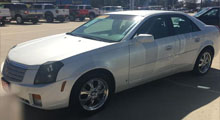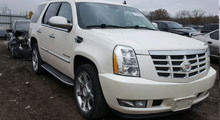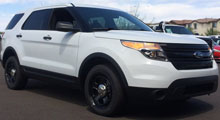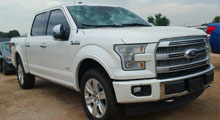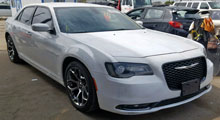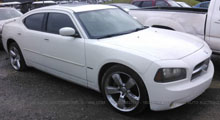Buying Your First Car
In recent years, the automotive industry has grown so rapidly that nowadays almost everyone buys a car or is about to get one. Plus, the competition is much greater than it used to be, and with so many car companies in the world, there is a huge selection to choose from. Each company has several models and different variants of this model. So you can imagine how many different new cars are for sale on the market. For most people, buying your first car is a big deal and it takes a lot of time and effort to find the right car.are you planning to buy your first car?Here are things to keep in mind .
Decide on the car you want?
You need to have an idea of what type of car you are looking for. For example, young people may want to buy a car for the sole purpose of impressing girls. Make sure you choose a car that suits your lifestyle. In other words, before you decide to search for your dream car, take the time to decide on the design, color, appearance, and other important characteristics.
Used Car versus New Car?
Confusion about this is probably the most common emotion in first-time car buyers. Everyone wants to buy a new car, but you have to ask yourself if this is the right choice for you. The answer to this question can be harsh, but it needs to be approached properly. Several factors are taken into account when making a decision, including your budget, your specific requirements, and your expectations from the vehicle.
Better understand the advantages and disadvantages associated with a new and used car.
While the new car will come with the latest features that are introduced from time to time by the auto industry and will really make you feel good about driving it, it will be quite expensive compared to a used car.
If you buy a new car, you have a wide variety of options. On the other hand, your choices may be limited when buying a used car. When buying a new car, a warranty and several other items are offered, but used ones usually do not apply.
The car is getting cheaper, so as soon as you drive it out of the concert hall, its value will plummet. After two or three years, you better not hope to get more than half the price if you decide to sell it.
Used cars are cheaper and more affordable if you have budget constraints. The downside is that you will always have the uncomfortable feeling that you are driving a car that previously belonged to someone else.
Take a full and realistic look at your budget
You need to consider your cash budget. Having the money you need means that you are determined to buy a car - and show the dealer that you have a business in mind. Once you decide on the car you want, you can determine exactly how much you need to spend. If you want to borrow money from a person or institution, make sure you can get the money back on time. If you decide you are going to buy a new car, you can still focus on the segment and label the car by determining how much you can spend. This will help you choose the right vehicle in the right budget. If you have a brand that is close to you, you can only choose it when your budget allows it.
Determine why you need a car and how you will use it
There are several reasons to buy a certain type of car, besides the fact that you have wanted it for a long time. Several factors need to be considered, including who will use the car - also only you or your family members. If you have a large family, you will need a car with more passenger and luggage capacity. If you are single, you can definitely opt for something smaller but luxurious. Mileage can be a deciding factor if you are using the car over long distances, i.e. too often. The list of reasons can be very long. Determining the right purpose for buying a car will help you make the right choice.
Financing
Once you decide on your budget, you will realize that you have a wide range of loan options. Auto loans usually have a fixed interest rate, which allows you to see the monthly payments. As with all of our car financing options, you can determine your outstanding balance to the lender at any time. You should calculate exactly how much you can spend each month on installments and other expenses such as insurance, regular maintenance and fuel.
Inspection, and Test Drive
It is advisable not to buy a car before testing. Once you locate a potential vehicle, check for signs that the vehicle is in a serious accident, as well as for any leaks or signs that there may be an engine problem. There are several ways to do this. You can consult with someone close to you who already owns the type of vehicle you are about to buy. You can also take advantage of the free testing opportunities offered by almost all car companies and dealers. If you are buying a regular car, you need to hire a mechanic to do a thorough inspection. Take your vehicle for a test drive to gain a better understanding of handling and performance.
After making sure that the car is tested and everything is in working order, it's time to make an offer. Make sure you are comfortable with the performance and design of the vehicle. If you are confused, feel free to hire an experienced car service to inspect the car interior. He will check the gears, steering, and clutch. The engine should run smoothly. Also, be sure to look for signs of damage, breakage, or wear.
Avoid impulse buying
Take your time to close the deal. You must acquire all information about the car, including previous ownership and history. Do you have enough money to cover the high repair and maintenance costs associated with buying a car? Is there enough space in your home to keep it safe? Never choose a classic car because the seller forces you to do so or because you like the way it looks. You may be surprised to know that some spare parts are out of the market.
Conclusion
Owning and buying your first car can be challenging, but homework can help. A good tip to take home with you is to explore several different options. You won't fall in love with a particular model
